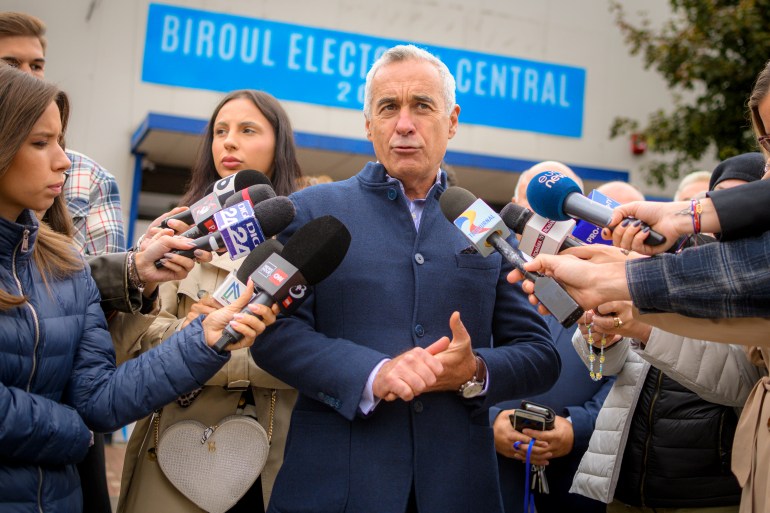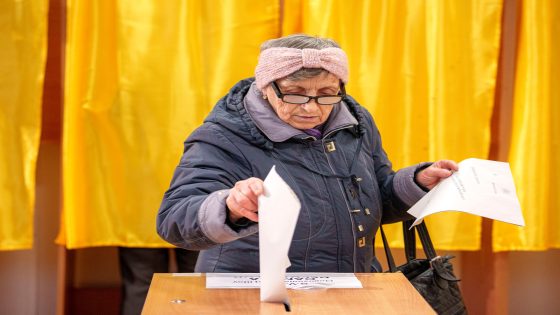Parliamentary elections come a week after a right-wing candidate won most votes in the first round of the presidential election.
Romanians are voting in a parliamentary election a week after the first round of the presidential election saw right-wing candidate Calin Georgescu emerge at the top.
Sunday’s vote will elect a new government and prime minister and determine the formation of the country’s legislature comprising the 323-seat lower house and the senate (133 seats). Romanians will elect lawmakers for both chambers on Sunday. Those who are abroad have been able to vote since Saturday.
The governing coalition of the Social Democratic Party (PSD) and the National Liberal Party (PNL) is competing to get better of the far-right Alliance for the Unity of Romanians (AUR).
The PSD and the PNL, which formed an unlikely coalition in 2021, have dominated post-communist politics in Romania – a member of the European Union and NATO.
Georgescu, who is a former member of AUR and was its PM pick before he left in 2022, ran as an independent in the November 24 election, challenging entrenched mainstream parties. He garnered 23 percent of the votes in the first round of the presidential vote.

His unexpected success last Sunday aroused suspicions of interference in the campaign, prompted a vote recount and led to a defeated candidate asking the country’s top court to rerun the first round of voting.
The confusion means the parliamentary election is going ahead with voters uncertain whether the outcome of the presidential first-round vote will stand. They also do not know whether the presidential run-off – scheduled for December 8 between Georgescu and centrist Elena Lasconi of the Save Romania Union party, or USR – will go ahead or be held at a later date.
The Constitutional Court considered the situation on Friday but decided to put off until Monday a decision on whether to annul the first round.
While the presidential role in Romania has significant decision-making powers in areas such as national security and foreign policy, the prime minister is the head of the nation’s government.
Many observers believe the presidential outcome indicates a sharp shift from Romania’s mainstream parties to more populist anti-establishment parties, whose voices have found fertile ground amid high inflation, high cost of living and a sluggish economy.





